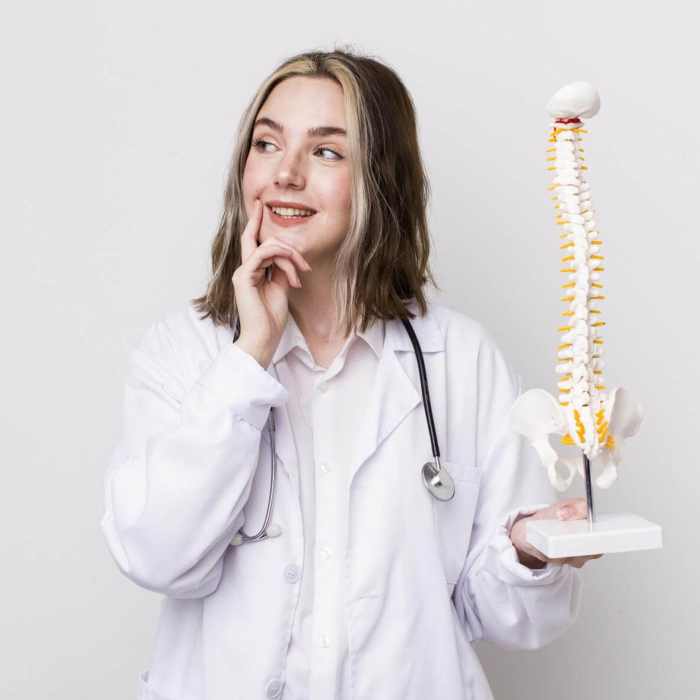
The DEXA bone density test determines the mineral content of the bones, the density of the bones, and as a result we can find out if there is osteoporosis. Also known as osteodensitometry (ODM), a Greek-Latin term for a procedure that uses X-rays. However, the amount of radiation used is small compared to a conventional X-ray examination.
Osteoporosis can occur in both sexes over the age of 50 if certain risk factors are present.
These include: genetic factors, type 1 diabetes, chronic liver or kidney disease, hyperthyroidism and parathyroid disease. It is always advisable to have the test done
The Osteosys DEXXUM device at our institute offers a versatile solution for the diagnosis and evaluation of osteoporosis and osteopenia, and helps to assess the risk of osteoporotic fractures. Our device works with a relatively short scan time, requiring only a few minutes (about 10-15 minutes) in the lying position or sitting position for wrist measurement.
The DEXA can take a body composition measurement:
The procedure is painless. The obtained bone density values are used to give a measurement result sheet at the time of the examination, which should be consulted to a specialist (e.g. rheumatologist, gynaecologist, internist) for interpretation of the bone density result for comparison with clinical information.
Results cannot be interpreted with metal implants in the lumbar spine or with a hip prosthesis on the same side, and therefore cannot be used to perform an examination of the region in question.

Bone density tests can be carried out
At our clinic, we do not ask for a referral for DEXA testing, but it is advisable for your referring doctor to describe any history or questions that you have about why you think bone density measurement is appropriate. Meals may be taken before the test, but calcium-rich foods should be avoided 24 hours before.
At the time of the test, apart from the metals implanted, metals on clothing and removable metals should be removed, and electrical devices should be left in the stripping room. It is recommended that you wear clothing without metal (zips, buttons, rivets, sequins, clasps) in the area to be X-rayed, or it is practical to bring such clothing with you. If not, we can provide a gown and slippers for changing.
Need a DEXA test? Book an easy and simple appointment online, or call us at +36-1-323-7000 to be seen at our well-equipped clinic in Buda without a long wait.
At our clinic, we do not ask for a referral for DEXA testing, but it is advisable for your referring doctor to describe any history or questions that you have about why you think bone density measurement is appropriate. Jewellery, piercings, watches and bras should be removed before the test (a T-shirt or long-sleeved clothing may be left on). Meals may be eaten before the test, but calcium-rich foods should be avoided for 24 hours before the test.